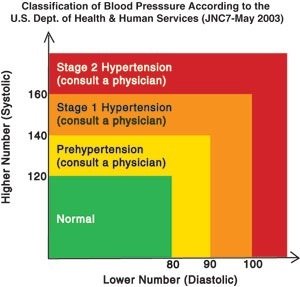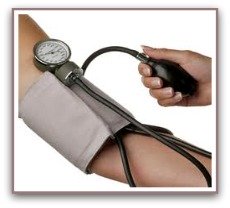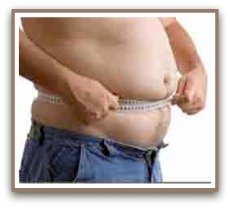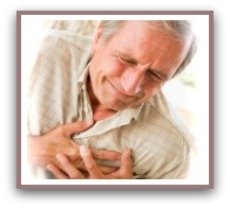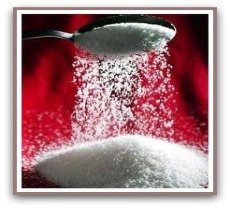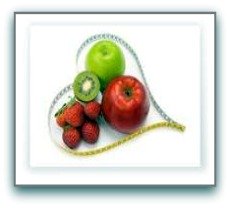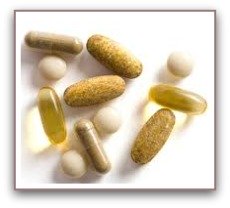|
Understanding Your Blood Pressure Chart
What is blood pressure?
Your blood pressure measurement together with a blood pressure chart actually tells you how much pressure it takes to move the flow of blood through your arteries. Narrowing of the arteries increases blood pressure significantly.
Blood pressure is measured in the hearts pumping rythmn: systolic pressure is taken at the moment the heart beats, diastolic pressure is taken when the heart is at rest between beats. Blood pressure is measured with a soft inflatable cuff called a sphygmomanometer . Systolic pressure is measured when the first pounding sound begins, then the cuff is further deflated and the diastolic pressure is taken when the sound is no longer audible. The combined pressure is used as a fraction, for example 120/80. A blood pressure chart, like the one used below, helps you determine if you have a normal blood pressure level or if it is too high. Basic Guidelines for what the blood pressure numbers mean as provided by the National Heart,Lung and Blood Institute (NHLBI) are as follows: NORMAL: lower than 120 Systolic over lower than 80 diastolic- lower than 120/80 PREHYPERTENSION: 120-139 Systolic over 80-89 diastolic - 120-139/80-89 STAGE 1 HYPERTENSION: 140-159 Systolic over 90-99 diastolic - 140-159/90-99 STAGE 2 HYPERTENSION: 160 or higher systolic over 100 or higher diastolic - higher than 160/100
It is a good idea to take your blood pressure reading a number of times throughout the day to find a reading that is normal for you. My sister, a nurse in England, says that many people experience what she calls 'scary nurse syndrome' but is officially called 'white coat syndrome'. She says this syndrome occurs because the blood pressure test actually causes people to feel stressed and produces blood pressure readings that are falsely high. So make sure you are comfortable and relaxed before you take your blood pressure readings!
High blood pressure is usually divided into two categories, primary and secondary. Primary hypertension is when your high blood pressure is not due to another disease such as kidney disease or hormonal abnormality.
if you have primary hypertension it is likely due to lifestyle factors such as stress, diet, high sodium and obesity. For a full list see
high blood pressure risk factors.
Secondary Hypertension Secondary hypertension is when your blood pressure is persistently high due to another underlying health problem. For example, if your blood vessels are constricted from a build up of plaque, you may have 'atherosclerosis'. Atherosclerosis and arteriosclerosis - a build up of plaque in the arteries - are both common precursors to hypertension.
Diabetes and kidney problems are also potential causes of secondary hypertension. Final Thoughts... As a nutritionist working in the field of health and weight loss, my clients have been able to control their blood pressure with lifestyle changes. Explore this site to get plenty of excellent ideas on how to easily change your lifestyle habits and prevent a lifetime of illness. Your blood pressure is manageable at this stage but can lead to serious heart disease if left untreated. A great place to start is to lose a few pounds to reduce the pressure required to pump your blood. Even a 10% reduction in your weight can have significant results on your blood pressure. If you add some foods that lower blood pressure and some powerful heart healthy supplements you will begin to see quick results.
Back to top of page: Blood pressure chart
|
Katrina Rees-Evans RHN,HNC,BA is a practicing Holistic Nutritionist with over 23 years experience in the Natural Health Industry in Canada.
Related Pages...
What are the symptoms of high blood pressure?
What are high blood pressure risk factors?
What are mens heart attack symptoms?
What are womens heart attack symptoms?
Foods that lower blood pressure





